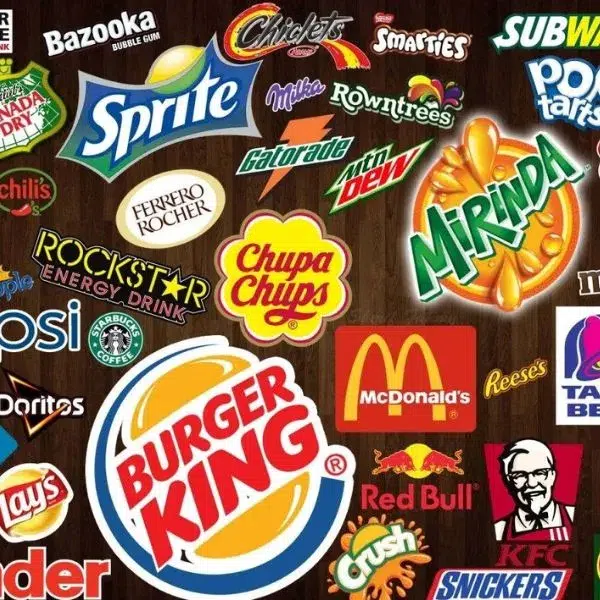Which Food Brands Are Not Halal?
Which Food Brands Are Not Halal?
For Muslims, following halal dietary laws is an essential aspect of daily life. Halal food is that which complies with Islamic dietary guidelines, which exclude certain ingredients, like pork and alcohol, and also require food to be prepared in specific ways. While many global food brands offer halal-certified products, it is equally important to know which food brands do not meet these standards. This blog will explore some well-known food brands that are not considered halal and why.

What Makes Food Not Halal?
To understand which food brands are not halal, it’s important to recognize the main factors that determine whether food is halal or haram (forbidden). These include:
- Ingredients: Food containing pork or its derivatives, alcohol, or any other haram ingredients such as certain enzymes, flavorings, and colorings, is not halal.
- Processing Methods: Food that comes into contact with non-halal ingredients during production or preparation, even if the final product doesn’t contain haram ingredients, may not be considered halal.
- Certification: Some food brands may not have halal certification or might not adhere to Islamic standards in their production processes, meaning they cannot be trusted as halal even if they don’t have explicitly haram ingredients.
Food Brands That Are Often Not Halal
While some food brands may offer halal-certified products, here are a few well-known brands whose foods might not be halal, either due to their ingredients or processing methods:
1. Nestlé
Nestlé is a global food giant with a wide range of products, from chocolates to ready-made meals. While Nestlé offers halal-certified products in specific regions, many of their offerings do not meet halal standards due to the inclusion of alcohol-based ingredients (like some extracts and flavorings), pork derivatives, or lack of halal certification. For example:
- Some of Nestlé’s ice cream flavors may contain alcohol-based flavorings.
- Certain chocolates may contain emulsifiers derived from non-halal sources.
2. McDonald’s
McDonald’s is known worldwide for its fast food, but when it comes to halal, there’s no uniformity. While some McDonald’s outlets in Muslim-majority countries serve halal-certified meat, in many Western countries, their beef and chicken patties are not halal. Additionally, the cross-contamination risk in the kitchen makes McDonald’s products unsuitable for Muslims looking for halal options. Some reasons include:
- Use of alcohol-based sauces.
- Pork-based ingredients in sauces (like bacon bits).
- Non-halal beef and chicken.
3. KFC
Like McDonald’s, KFC has halal-certified outlets in some countries, particularly in the Middle East and parts of Asia. However, in many Western countries, KFC uses non-halal chicken and may also serve food items that have been fried in the same oil as non-halal products. Ingredients to watch out for include:
- Non-halal certified chicken.
- Cross-contamination with haram items.
- Alcohol-based marinades and sauces.
4. Coca-Cola
Coca-Cola is another brand that has products considered halal in some countries but not universally. The primary concern with Coca-Cola products comes from the ingredients used in certain regions, such as artificial flavorings, colorings, and emulsifiers that might be derived from non-halal sources.
- Coca-Cola may also contain traces of alcohol used in flavor extracts, especially in the production of some soft drinks.
5. Pepsi
Like Coca-Cola, Pepsi also produces beverages that are sometimes not halal depending on the region and ingredients used. Some Pepsi products may contain:
- Alcohol-based flavoring or vanilla extract.
- Non-halal sources of emulsifiers or stabilizers.
6. Unilever (Ben & Jerry’s, Hellmann’s)
Unilever is another major food brand that owns many popular food products, including Ben & Jerry’s ice cream and Hellmann’s mayonnaise. While Unilever does produce some halal-certified products, many of their items contain non-halal ingredients, such as:
- Gelatin (derived from pork or non-halal sources) in certain ice creams.
- Alcohol-based flavorings in some products.
- Non-halal emulsifiers in dressings and sauces.
7. Heinz
Heinz is famous for its ketchup, sauces, and other condiments, but many of these products do not meet halal standards. Common non-halal ingredients include:
- Alcohol-based flavorings in some sauces.
- Non-halal certified ingredients in processed products like baked beans.
8. Cadbury (Owned by Mondelez International)
Cadbury’s chocolates are some of the most popular around the world. However, many of their products contain emulsifiers derived from non-halal sources or might be cross-contaminated with haram items during production. Ingredients like:
- E471 (mono- and diglycerides of fatty acids) which can be derived from animal fats.
- Certain chocolates containing alcohol-based flavorings (e.g., in liquors or chocolate truffles).
9. Starbucks
While Starbucks has some halal beverages, such as certain teas and coffee, many of their products are not halal due to cross-contamination, alcohol-based flavorings in syrups, or non-halal dairy additives. Examples include:
- Certain syrups and flavorings containing alcohol.
- Cross-contamination risk in shared kitchen equipment.
How to Ensure Food is Halal?
- Look for Halal Certification: The most reliable way to determine if a food product is halal is to look for halal certification labels on the packaging.
- Research Ingredients: Many food brands list ingredients on their packaging, so you can check for non-halal ingredients such as pork, alcohol, or non-halal emulsifiers.
- Contact the Manufacturer: If in doubt, contact the manufacturer directly for more detailed information on how the product is made and whether it complies with halal standards.
Conclusion
While many food brands offer halal-certified options, some major global brands still produce products that are not halal due to ingredients like alcohol, pork derivatives, or lack of halal certification. If you are unsure whether a food item is halal, it’s best to read labels, check certification, or contact the manufacturer directly. By being informed about the brands and products you choose, you can make sure your food choices comply with Islamic dietary laws.
Always remember that halal food is not only about avoiding specific ingredients but also ensuring the ethical and hygienic preparation of your food in line with Islamic guidelines


